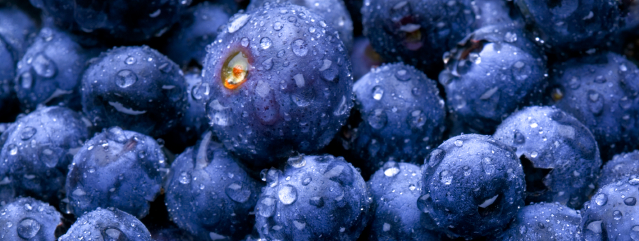How Blueberries Heal a Traumatic Brain Injury
You reach for the bush, grab a cluster of summertime, then pop the handful of nature’s sugar into your mouth. A burst of warmth coats your tongue, meanders down your throat, and you think of homemade jam. You grab another cluster, then another, and eat them all, guilt-free, because you know they are good for you – blueberries.
They may be small, but wrapped inside the sheen of a blueberry skin lies a treasure of health benefits: vitamin C for immunity, manganese for strong bones and for converting fats, proteins and carbohydrates into energy. Blueberries are packed with fiber, which helps reduce cholesterol. Research shows that they even reduce the risk of obesity. Polyphenols – substances that give blueberries their blue-purple color – fight off unstable molecules that put us at risk for heart disease, cancer, and Alzheimer’s disease. Health magazines, Dr. Oz, and likely your own mother, have touted the benefits of eating blueberries. But did you know that these blue jewels, which have been around for more than 13,000 years, might help survivors of traumatic brain injuries recover?
The brain functions normally in the presence of glutamate – a neurotransmitter, or chemical that mediates excitatory signals through the nervous system. But, after a brain injury, glutamate rapidly increases, destroying cells. However, in animal studies, researchers have noted that when extracts from blueberries are added to the cells with glutamate they are actually protected. Though it is not necessarily a good idea to always heed “the more the better,” but “the more berries you eat, the better your brain will be protected if a stroke or traumatic brain injury occurs,” says Dr. John Weber, a researcher at Memorial University’s school of pharmacy. Dr. Weber, and others, is still trying to determine exactly how many blueberries are needed for a specific amount of antioxidants – molecules that combat free radicals, or unstable molecules – to reach the brain, and how long they will remain there.
But Dr. Weber is clear about one thing: those who have suffered a moderate to severe injury might not benefit from eating blueberries. Yet, the extracts in berries might be helpful in the later stages of healing.
Blueberries store well in the freezer –they don’t suffer damage to their fragile polyphenol skins. So, at only 80 calories per cup, stock up, and eat up!
http://www.naturalnews.com/032219_polyphenols_blueberries.html
http://www.blueberrycouncil.org


Recent Comments